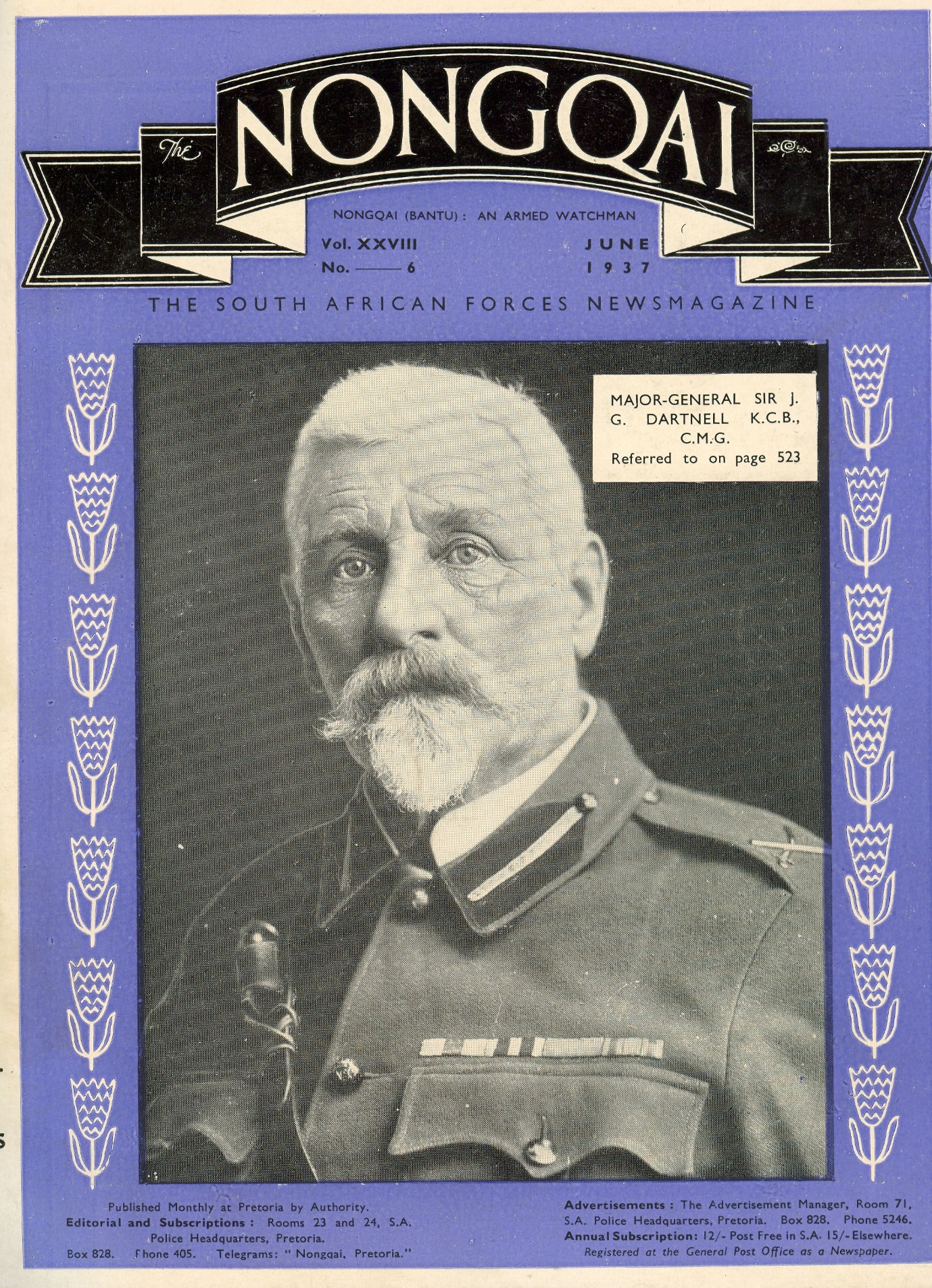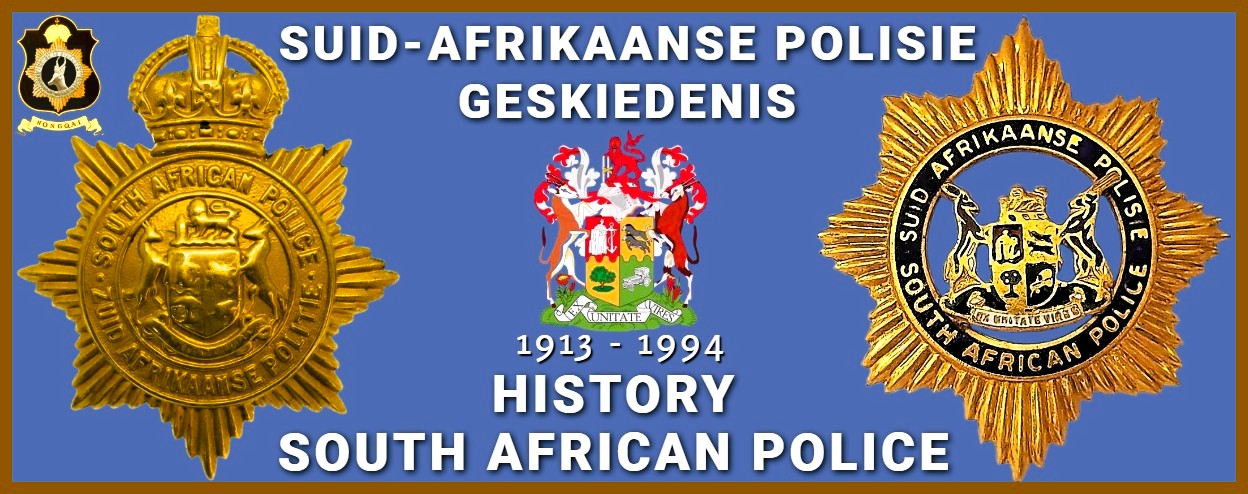NATAL MOUNTED POLICE
BASIC TRAINING: MOUNTED DRIL: NATAL MOUNTED POLICE
Dr Henry Abbott
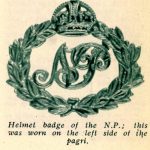
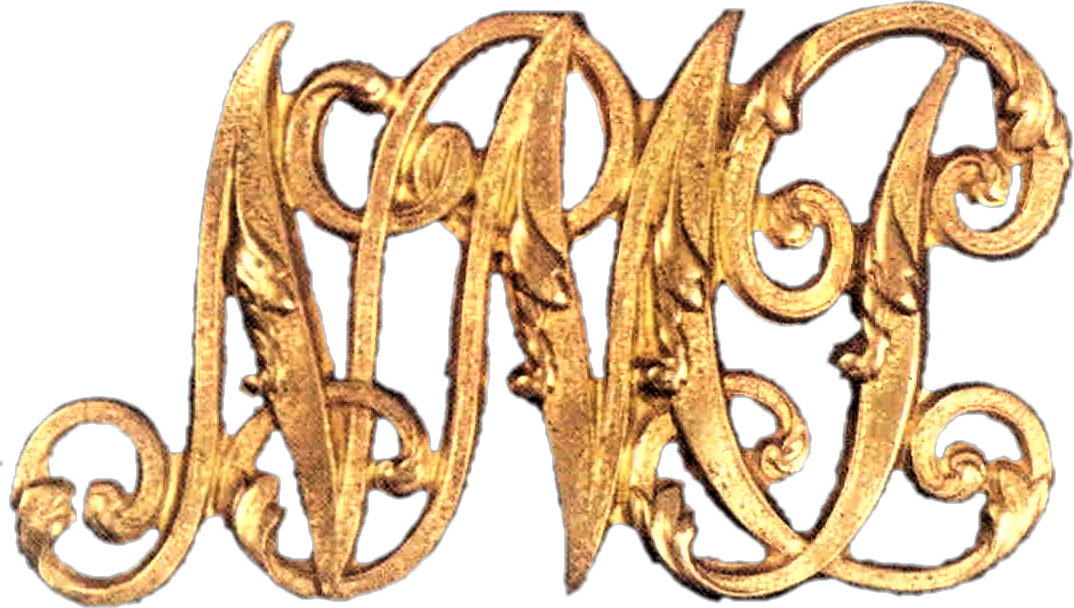
Hallo Hennie,
Wie van ons dink nie partykeer terug na die manewales van ‘n kaartmannetjie-korporaal, -drilsersant, -adjudant of -samajoor nie? Party van die manne het uittrap tot ‘n fyn kuns ontwikkel! Ek onthou byvoorbeeld samajoor Hougaard, 1970, Diensvakskool. “… En as jy ‘n probleem het, moenie die korporaal vra nie. Nee, vra vir samajoor Hougaard want hy is mos jou Ma en jou Pa en jou Ouma en jou Oupa, jou Oom en jou Antie!”
Die uittreksel hieronder uit die 1870’s wys ons dis ‘n lang tradisie wat deur baie geslagte van korporaals en drilsersante vervolmaak is. Ek is seker “Puffy”, sou dalk vir ‘n hedendaagse kletsrymer iets kon leer!
![]()
Short extract from:
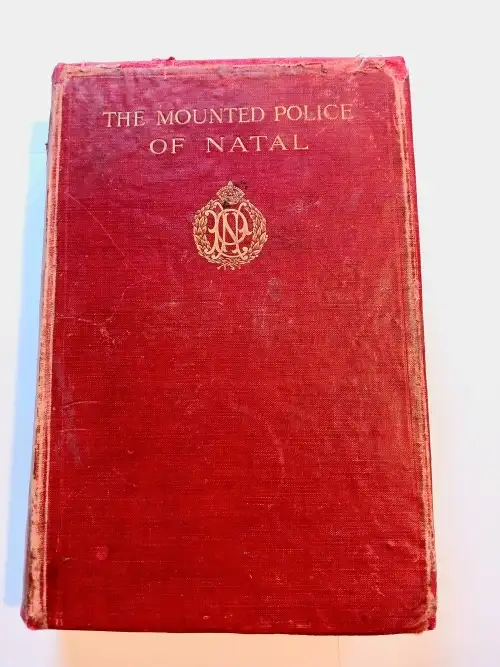
BOOK: The Mounted Police of Natal
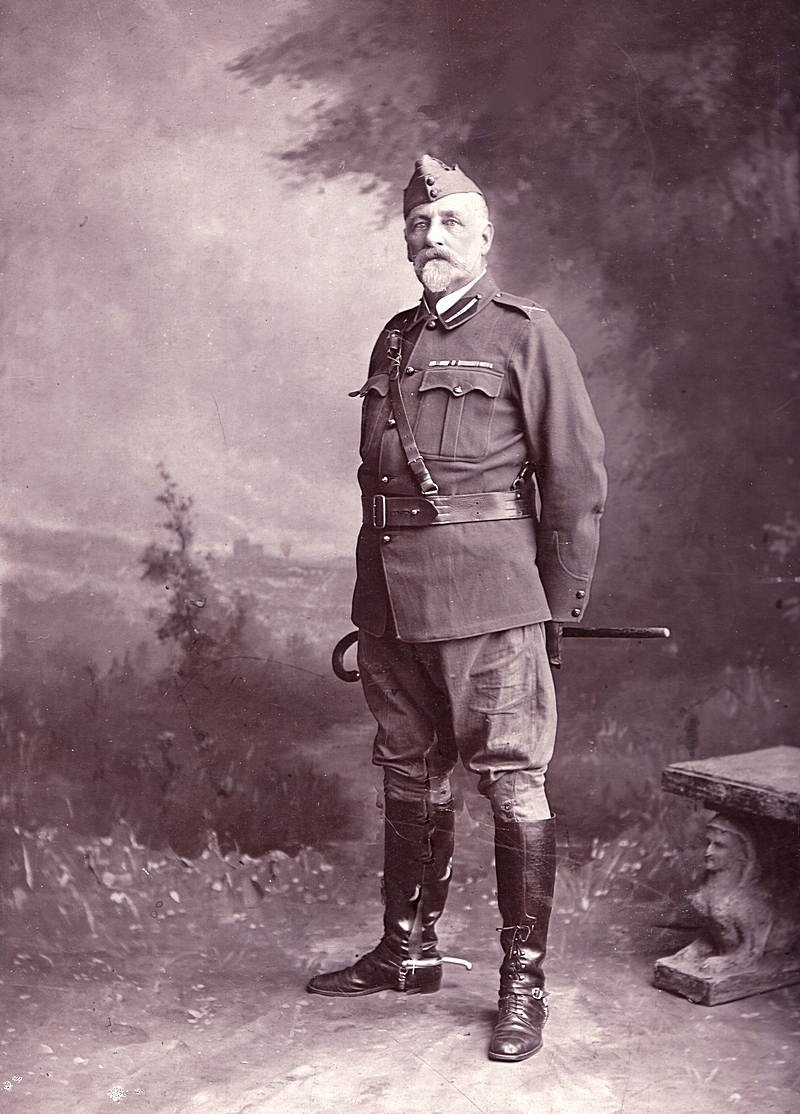
Major-General Sir J.G. Dartnell, K.C.B
![]()
The Mounted Police of Natal
by H.P. Holt, 1913 with an introduction by Major-General Sir J.G. Dartnell, K.C.B, the founder of the corps
1. Introduction by Major-General Dartnell who was asked to organise a Mounted Police force for Natal:
Three officers were appointed to assist me, viz., Mr. G. Mansel (now Colonel Mansel, C.M.G., who later raised and commanded the Zululand Native Police), Mr. F. Campbell (a relative of the Speaker of the Legislative Council), and Mr. F. Phillips (son of Judge Phillips of the Supreme Court of the colony).
…….
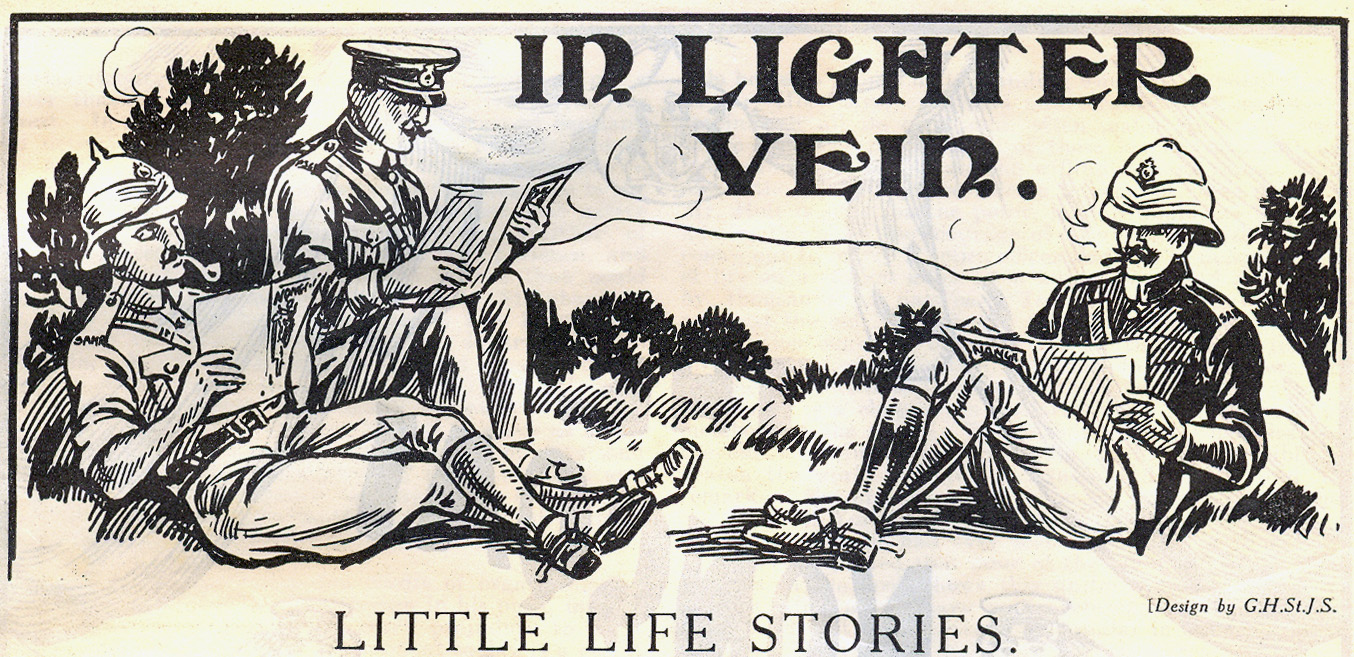
I was assisted in the training of the men by a first-rate sergeant-major Stean who had been a colour-sergeant in the Cape Mounted Rifles and was the very best man I could possibly have got to lick a rough lot into shape, for he was strict and at the same time good-tempered. Although he used to shout at the men in a deep bass voice, and turn them out before daylight in the morning to clean barracks and groom their horses, preparatory to riding-school, in which he delighted, he was much liked by them, and they used to speak of him familiarly behind his back as “Puffy.” Some years later, when he became adjutant, he was spoilt, for he never had his heart in his work as he had when sergeant-major, and missed not being able to shout at the men and take them out to riding-school, where his language was free and his vocabulary often very quaint.
One morning I was looking on from a little distance at the squad undergoing instruction, and out of the ken of the sergeant-major, who had not noticed me, when I saw him suddenly draw his sword and make a dash for a man who promptly tried to gallop off. He soon overtook him, however, and flourishing his sword over the man’s head said: “By God, I’ll cut your head off!”
The poor terrified recruit was clinging to the pommel of his saddle like a monkey, with his forage-cap at the back of his head and his chinstrap under his nose, saying, “Please, sir! Oh, sir!” and after a particularly vicious flourish of the sword, “Don’t, sir!”
I was very much amused, and some of the men in the squad laughed loudly. That took the sergeant major back angrily, but, perceiving me, he came up and saluted, saying: “That fellow”, pointing to the still shaking recruit “wouldn’t keep his horse in the ranks, sir, so I was just giving him a little lesson.”
2. The sergeant-major was universally known as “Puffy.” He was a soldier from the tip of his pith helmet to the soles of his boots, and he knew to a nicety exactly when to pour forth a stream of invective when the drill grew ragged. A man of tireless energy, he expected his men to keep up to his own pitch, and his methods of training were severe. No recruit ever born had such a thick skin that he did not feel the bitterness of the sting when “Puffy” chose to bestow his choicest expletives on him.
One man who “went through under “Puffy” at the riding-school in 1879 has put on record an example of the remarks the sergeant-major used to let drop while drilling his men. They ran like this:
“Prepare to mount. By numbers, One, two, there’s a man putting his wrong foot into he’s got the right one now. Mount. Keep your heels well down, and your toes turned in. Don’t look at me, my man; do as I tell you, not as I do. Heels well down, Ilberry you look like a ballet girl. Squad! March. Left hand in a line with your confounded elbow, Jenkins. Look at him! Look at him!”
“You’re the man who told me you’d hunted with the Oakleigh’s, are you? Sit up you look more like a monkey on a piece of crockery than anything I’ve ever seen. When I give the word to trot, break into a gentle trot. Squad! Trot. Now, idiots! Let go those lifebuoys, Ilberry. Look at him hugging that horse round the neck. That’s a horse, Ilberry, not a girl. I’ll have you off if you ride like that. You’re off, are you? Halt. Get up again. That’s right. You’re a beauty. Get into the ranks. March. Trot. Sit up in your saddle, Ilberry. You’re slipping under the horse’s belly he might hurt you if you stop there. What a crew!”
“There’s Jenkins again. Nearly off. Sit up straight in your saddle, Simpson. It’s ‘here’s my head and my boots are coming’ with you sit upright, man. I saw you in the Park on Saturday, on foot, with Ada. You’ll never be able to take her out for a ride if you don’t learn to ride better than that. Lord, there’s Ilberry off again and Jenkins as well Halt!”
Then “Puffy” really would begin to talk. He was promoted to the rank of adjutant later, but that removed him from the sphere in which he shone, and the later recruits never knew what it was to hear the biting sarcasm that could fall from his
lips on parade. He spent the last year or two of his service keeping a letter register, which became a sort of hobby, and finally he retired to Bristol on pension.
https://archive.org/stream/mountedpolicena00holtgoog/mountedpolicena00holtgoog_djvu.txt
“”””””””””””””””””””””””””””””””””
Groete,
Henry Abbot
![]()
Ons het inderdaad jare later op die skouers van Reuse gestaan! – HBH
![]()
